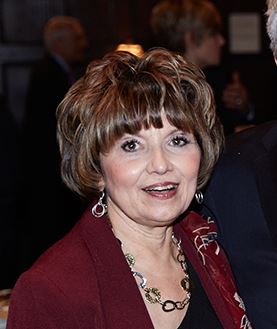
(By Deborah Parenti) The events of the past week have brought not only disruption to a lot of lives but stirred emotions, thoughts, and opinions by everyone who works, has worked, or has interest in the radio industry. Radio people are, to the core, a passionate group. It’s sometimes hard to explain to those on the outside. Maybe it’s tied to the “theater of the mind” that it creates. Or perhaps it’s the intimacy that can be felt when it is delivered or consumed. Whatever, I have always felt there is a sprinkling of magic – and all that passion – that define radio and radio people.
So the outpouring and commiserations were not surprising or unexpected. Nor was the criticism of the iHeart leadership. We are humans. We need a human face – a name – to which we can affix the blame. Sometimes with reason, and other times more symbolically. Whatever the case, in an age of Internet-driven social media, all the commentary and opinions are no longer confined to around the “water cooler” or over after-work drinks. News and views are tweeted, posted, chatted, and read from a smart phone 24/7. Much the same as you are likely reading this.
Technology has indeed connected us.
Technology has also changed our lives, virtually – in both the literal and the figurative sense. Every aspect of it, including media – how we consume it, how we communicate it – has been forever altered by technological changes. And it’s not about to stop. Indeed, we’ve come a long way from the telegraph (look that one up if it doesn’t ring a bell).
Ask anyone familiar with the Rust Belt and they will tell you how technology impacted the manufacturing plants that once delivered good jobs and even better wages. Or consider 20th century innovations that are today obsolete – things like dot matrix printers, fax machines, corded phones, PDAs, and typewriters. And what about floppy discs and phone books? Before you think “that’s different,” keep in mind that behind those products and services, there were people – and jobs.
All were changed by the tech revolution – the same one that brought ATMs, smart speakers and Alexa, navigation devices, and so many other tech tools many feel they could not live without today. That would include instant access to information like weather, news, and sports scores.
“Alexa, what’s the forecast in Philadelphia tomorrow?”
And it also includes radio. Technology has forever changed radio. Many in the industry have been foreseeing, warning, advising for some time now, that radio needs to change, take advantage of, and stay ahead of the tech curve as much as possible. Yes, local radio and local radio personalities can still be vital to their communities, especially in times of crises. But radio today does not serve all the same needs as it did once upon a time.
“Hey Google, what’s the traffic in Dayton on I-75 right now?”
Nor does it operate in the same environment or corporate culture as when many of us started our careers. Deregulation, economic downturns, Wall Street and outside equity partners, and the onslaught of digital and other new competitors for ad dollars – all of these have impacted the radio business model. Of course, as regards competition, interminable stop sets and other programming “sins” haven’t helped radio on the battlefield for ears.
Meanwhile, virtually every aspect of the business has been touched by technology, from accounting and traffic to sales support and on-air.
With this have emerged two different business models. One is iHeart, moving further toward and embracing technologies that are redefining the role and operational model of their stations within a much larger media conglomeration.
On the other side of the coin are the many thousands of stations that are owned and operated by smaller groups and individuals; those not owned by iHeart or other major groups. When you stop to think about it, that’s an awful lot of radio. They can certainly still be live and local – they can just as certainly take advantage of their digital assets while maintaining that up-close-and-personal community connection.
That can be a powerful force, not only for their listeners but for those who have been laid off. We have all read the social media posts and shout-outs over the past week, including many from those who might be in a position to hire or help find employment for those suddenly out of work. We know that means a lot to those impacted – to be able to air their stories and/or be bolstered with encouraging words by their comrades.
But now we need to do more than talk about it. Now we need to try to do something tangible to hopefully change some situations. Not everyone will probably find a job again in radio, or radio as they first aspired to, but if we can help at least some find a new gig, that’s a win. To assist in that area, Radio Ink has established a web page for both wanted and positions available. It’s fast, it’s easy to post on, and it’s free. If you own stations or are in charge of hiring for any department, especially programming in this case, we hope you will take advantage of it. And if you are in a business that services the industry and looking for someone from radio’s talent pool, please post those positions as well. Of course, if you are currently looking for employment, be sure to post your resume.
But could we take it a step further? If you run a radio group or station and are committed to local programming, how about going out on a limb adding someone who has been displaced in some capacity? It could be the best investment on gut you make this year. You might find you hired “magic” – and that can be priceless.
Let’s do this!
PS – Radio Ink is not alone in trying to help those who have found themselves out of work. Hats off to All Access for also spreading the word about those now seeking new gigs.
Deborah Parenti is Publisher of Radio Ink. She can be reached at [email protected]






Yes, radio and technology continue to evolve and change. Fine, I think most broadcasters understand and accept that (or don’t accept that). However, the “events” of last week have everything to do with servicing the 6 billion dollars of debt that iHeartMedia still has hanging over their head. As a public company they need to keep increasing profits. Not to mention the stock price moving in an upward direction (as it did last week).
Radio is not dying or becoming obsolete. iHeartMedia is still a company that is still heavily in debt. Seeing Mr. Pittman as Radio Executive Of The Year on the cover of your magazine on your website is vile and should be removed.
I’m sure Deborah means well in this article. A lot can be said about the recent “big company” moves but what will it change? The idea that we have to do “something” is a great idea. The iHeart moves expose a lot of their weaknesses and a smart operator will see that – and act accordingly. Music programmed from one source? Singular voices across the country? Local reaction when a local event (disaster, snowstorm, etc.) happens? Training your traffic reporter to be more than a menu reader. Getting the mayor on your radio station? We’ve had a whole week digest what happened. Okay now let’s go forward and show ’em that they may have made a few errors in judgement.
Oh – and the list of things replaced by technology (“dot matrix printers, fax machines, corded phones, PDAs, and typewriters. And what about floppy discs and phone books?”) It seems that those items were all replaced by something “better” and/or more convenient. Network radio was destroyed by TV -so radio was reinvented. Time for another reinvention of something that’s still free, more convenient and more prevalent than any digital application can be.
Thanks for sticking your neck out there, Deborah. Thanks to Radio Ink for helping to support those pushed out by the business of keeping Wall St. happy.
Deborah, with all due respect, your column here is more of an obvious diplomatically written “political” column, than it is anything of substance. Why are you protecting and defending Bob Pittman and iHeart?
You state that iHeart is “redefining the role and operational model of their stations.” Please explain what that “role” is for iHeart stations that are heavy on generic automated voice-tracking, and bereft of any local relevance or local personalities. What is the “role.” ??
And how do iHeart’s personnel reductions “embrace technologies” ? Seems like laying off personalities is for one purpose — to cut cost!!
It is ironic that in the very next column after yours, Jeff McHugh in his piece “The Day After Reckoning” states that “In business school, they told us repeatedly that layoffs are always a sign of poor management.” Wow.
And it’s also ironic that in your column, you ask other stations to consider hiring local personalities that were fired by iHeart. That is certainly a noble statement, but also it points out how other groups and stations are being asked to do damage control for Pittman’s and iHearts total management incompetence and destruction of their stations….while Bob and Bressler get paid tens of millions of dollars and Bob is “Radio Executive of the Year.”
Sounds like a sick, twisted movie comedy!
Your comments and perspective are most appreciated. Certainly, there is a lot of honest discussion and dissection going on right now. That said, what I sincerely hope is that those who have the wherewithal and believe in the vibrancy of radio, especially local radio content, will make the investment in it as they envision it should be. Radio is coming up on 100 years. No one group has ever totally defined it – and none should now. There are thousands of stations that are not owned or operated by a major player. Those stations don’t have to mimic what they may see as destructive to its future. They can chart their own course and with that, yes, maybe hire some of those displaced – not to help some corporate entity – but to help their fellow broadcasters and themselves.
Yet your publisher nominated that parasite at I Heart as executive of the year. Explain that Debbie?